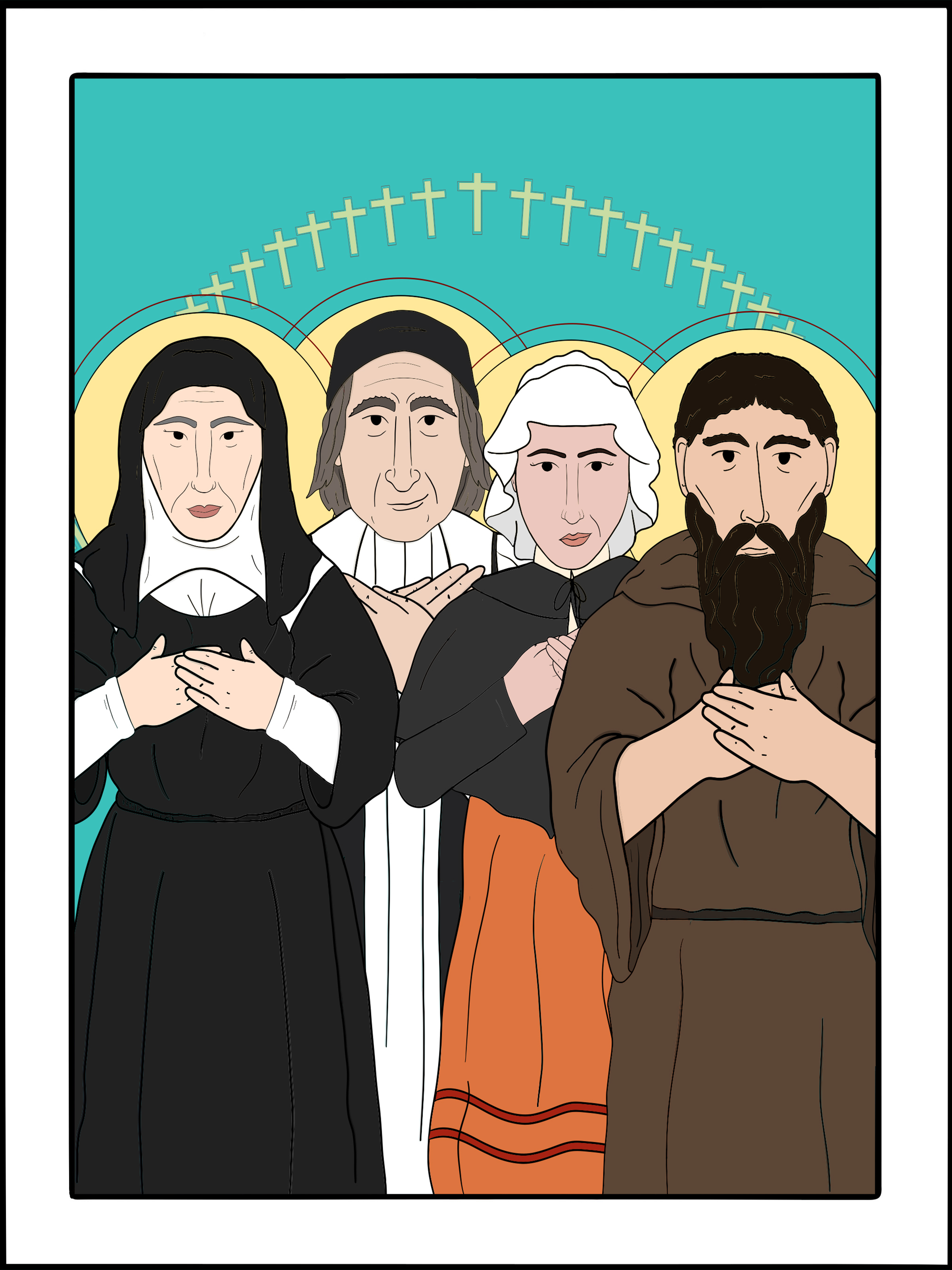
May 5
Martyrs of the Reformation Era
art by Rev. Kirsten Kohr of Geneva, Ohio Almighty and Most Merciful God, give to your church that peace which the world cannot give, and grant that those who have been divided on earth may be reconciled in heaven, and share together in the vision of your glory; through Jesus Christ your Son our Lord, who lives and reigns with you, in the unity of the Holy Spirit, one God, now and for ever. Amen.
The Roman Catholic Church commemorates the Forty Martyrs of England and Wales on May 4: men and women who were executed for treason between 1535 and 1679 for their allegiance to the Catholic Church. In recent years, the Church of England has shared this commemoration, broadening it to all of the English saints and martyrs of the Reformation era. This commemoration remembers not only Anglican martyrs like Thomas Cranmer, Hugh Latimer, and Nicholas Ridley, who died for their adherence to the Church of England, but those Catholics who were killed by Anglicans—along with all other Christians who were persecuted by their fellow Christians for their beliefs, most notably the Anabaptists and the Quakers.
Ecumenical dialogues around the five-hundredth anniversary of the Reformation have led many Christians to soul-searching questions about the role that our churches played in the persecution of other Christians for their beliefs. Without minimizing the seriousness of the theological disagreements or the inextricable links between religion and politics in that time, this commemoration asks us to recognize that within the heritage of our own tradition, there were both victims and persecutors and that there was a deeply Christian courage and holiness present in the martyrs from various confessions who were willing to die for their faith. It is a sobering reminder of just how swiftly Christians have often turned from being persecuted and oppressed to being the persecutors and the oppressors of others.
By our baptisms, we are incorporated into God’s one church, and thus we are the heirs of both the martyrs and their executioners. It is this double heritage that must spur our efforts to heal our divisions and to work and pray for a future when Christ’s prayer that his followers might be truly one as he and the Father are one (John 17:21) will be fulfilled.
Excerpted directly from “Lesser Feasts and Fasts 2022,” p. 220-221.

